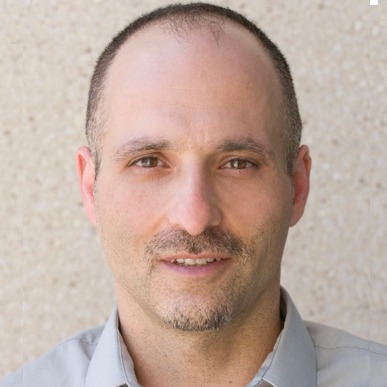Antibiotic Use - Appropriate Regimens & Drug Resistance
Species
Equine
Contact Hours
3 Hours
Early Booking Deadline
Thu, 01 January, 1970
Registration Deadline
Thu, 01 January, 1970
Language
English
Discipline
Internal Medicine – Endocrinology, Haematology, Infectious Diseases, Parasitology & Oncology
Orthopaedics
Sports Medicine
Surgery
Toxicology & Pharmacology
Industry Partners
Global

Veterinary Partners
Global


Recorded on: 14th March 2023
Panelists:
Mark Bowen BVetMed, MMedSci(MedEd), PhD, CertVA, CertEM(IntMed),
DACVIM-LAIM, DECEIM, PFHEA, FRCVS - Medicine Vet Equine Referrals Ltd, UK
Gary Magdesian DVM, DACVIM, DACVECC, DACVCP, CVA - University of California, Davis, USA
Mathijs Theelen DVM, DECEIM - Utrecht University, Netherlands
Moderator:
Denis Verwilghen DVM, MSc, PhD, DES, DEVDC(eq), DECVS - Goulburn Valley Equine Hospital, Australia
CONTENT DESCRIPTION
The discovery of antibiotics has revolutionised outcomes in both human and veterinary medicine. Yet following decades of antimicrobial overuse, we have reached an era in which “less is more”. From a One Health perspective, balancing the benefits and needs of the individual patient with the detrimental effects of unnecessary antibiotic use on the wider society need to increasingly be considered.
This panel discussion is part of a series focused on rational use of antibiotics in equine practice. An international panel of renowned multidisciplinary specialists with an interest in the field of antimicrobial therapy will be discussing critical points in relation to antimicrobial use, resistance development and policy changes.
In Part 2 of this series the following points will be tackled:
- How does one decide when antimicrobials are necessary/appropriate and beneficial rather than contra-indicated?
- Can we optimise antimicrobial treatment plans based on biomarker information?
- Are we sure that the drugs we give reach their destination?
- Balancing and maximizing the benefits – how are we and how can we avoid selecting for resistance
- What scary bugs have we been cultivating lately, and can we avoid this from happening?
- How can we promote antimicrobial stewardship within our practices/clinis?
- Thoughts on legislation changes that may impact our use of antibiotics.
.
Currently Hospital Director at the Goulburn Valley Equine Hospital in Australia, Denis Verwilghen started off his career as an equine veterinarian in private practice in Ireland and the Netherlands immediately after graduation from the University of Ghent, Belgium in 2003. With the desire to improve his skills, Denis went back to academia end 2004 to become resident in equine surgery at the University of Liege, Belgium. In 2006 he defended a master in veterinary science degree on the subject of "Osteochondrosis and its relationship with IGF-I in the Horse". In 2009 he obtained a specialist diploma (DES) in Large animal Surgery from the University of Liege and in 2010 Denis successfully passed the exam of the European College of Veterinary Surgeons. Denis then defended his PhD in Liege about clinical impact of developmental orthopaedic diseases in horses. In 2022 Denis became diplomate of the equine chapter of the European College of Veterinary Dentistry.
After spending some time in Sweden, Denis and his wife Gaby, an ECEIM diplomate, moved back to Belgium and started a consultancy based equine medicine and surgery service. In 2013, both have been appointed at the Equine hospital of the Copenhagen University before moving as an Associate Professor and Head of the Camden Equine Centre - Sydney University in 2018. Following a brief period in Germany in 2021, Denis returned to Australia to work for Melbourne University at their Goulburn Valley Equine practice.
Denis interests lay in general soft tissue and orthopaedic surgery. He has a special interest in surgical head disorders, dentistry and biosecurity in veterinary medicine with emphasis on surgical principles and hand hygiene. Denis has a broad range of publications on various aspects of equine surgery with a particular interest in asepsis research, orthopaedic biomarkers and dentistry.
Gary graduated from US Davis , and went on to undertake internships at Texas A & M University and a residency at UC Davis. Gary is a diplomate ACVIM ACVECC and ACVCP.
He currently holds the position of Professor of Veterinary Medicine at UC Davis. He has clinical interests in neonatology alongside research interests in neonatology and critical care, fluid balance, and has contributed to/published in excess of 130 papers.
Mathijs graduated in 2007 with honors from Utrecht University.
He started working as an junior researcher at UC Davis (USA) on a project titled: 'Temporal trends in prevalence and in vitro antimicrobial susceptibility patterns of bacteria isolated from foals with sepsis'.
After this he worked as an equine practitioner at Lingehoeve Equine Hospital in The Netherlands.
In 2009 Mathijs started his internship at Utrecht University followed by a residency in equine internal medicine at the same institute. He passed his board exams at once in 2014.
At the moment Mathijs is Assistant Professor in Equine Internal Medicine at Utrecht University. He spends half of his time working in the clinic and teaching students. The other half of his time he is working on his PhD project, which is a collaboration between the Department of Equine Sciences and the Department of Infectious Diseases and Immunology (Clinical Infectiology) of Utrecht University. A part of his PhD will be undertaken at the University of California in Davis (USA). His research is focussed on antimicrobial resistance and antimicrobial susceptibility patterns of bacteria isolated from horses and the gut microbiome of horses.
Mathijs' special interests are microbiology, antimicrobial drugs, neonatology and liver diseases.
Veterinary Student
Online Panel Discussion
USD 35.00
Qualified Vet
Online Panel Discussion
USD 85.00
Intern/Resident (Requires proof of status)
Online Panel Discussion
USD 65.00
Vet Nurse/Vet Tech (Requires proof of status)
Online Panel Discussion
USD 65.00
If the options you are looking for are unavailable, please contact us.
No tax will be added unless you are a UK taxpayer
Choose currency at checkout

















